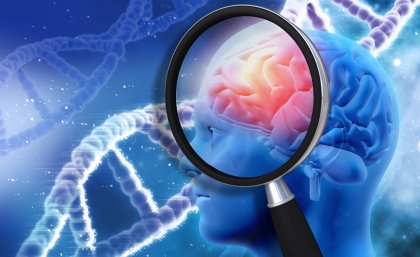Korean Molecular Neurobiologists Identifies Gene Interactions Responsible For Cognitive Defects In Down Syndrome With New Potential Treatments In The Pipeline
Source: Thailand Medical News Jan 09, 2020 6 years, 1 month, 2 weeks, 4 days, 1 hour, 29 minutes ago
Memory and learning impairments in a
Down syndrome mouse model were reversed by correcting expression of a
gene that influences the generation of new neurons in the brain. The finding could pave the way to treat the
cognitive impairment associated with
Down syndrome in humans.

Typically, adult
neurogenesis is the process of generating new neurons in the adult brain. Defects in this process have been observed in various animal models of neurological disorders including schizophrenia, depression, Parkinson's disease, Alzheimer's disease, and neurodevelopmental disorders such as Down syndrome. But the precise cellular and molecular mechanisms underlying adult
neurogenesis and their links to neurological disorders are not well understood.
Dr Kyung-Tai Min, a
molecular neurobiologist from Korea's Ulsan National Institute of Science and Technology and his colleagues found that interactions between a
gene called the
Down syndrome critical region 1 (
DSCR1) and two other molecules, TET1 and miRNA-124, were necessary for adult
neurogenesis and were important in learning and memory.
The
gene DSCR1 is known for its involvement in learning and memory and is overexpressed in
Down syndrome. TET1, which is an enzyme, and miRNA-124, which is a micro-RNA, are known for having roles in adult
neurogenesis, but the details were not clear. Min and his team have now found how the three molecules work together to regulate adult
neurogenesis.
The researchers showed that
DSCR1 binds to a non-coding section of TET1 RNA, subsequently controlling expression of TET1 proteins, which then regulate miRNA-124 expression levels. This process is required for adult
neurogenesis and for maintaining learning and memory abilities.
The researchers told Thailand
Medical News that by knocking out DSCR1 in mice, this led to increased TET1 levels, and ultimately increased miRNA-124 expression. Correcting TET1 levels in these mice prevented defective adult
neurogenesis.
It was also found that adult
neurogenesis, and learning and memory impairments improved in a mouse model of
Down syndrome when the scientists restored
DSCR1 levels.
The study findings reveal that precise regulation of
DSCR1 and the interplay between TET1 and miRNA-124 are crucial for normal adult
neurogenesis.
Dr Min told
Thailand Medical News, "Our findings not only provide a basic understanding of the mechanisms regulating adult
neurogenesis, but will also contribute to the development of a novel therapy for the cognitive defic
its manifested in
Down syndrome patients."
Reference: DSCR1‐mediated TET1 splicing regulates miR‐124 expression to control adult hippocampal neurogenesis, Chiyeol Choi, Taehoon Kim, Karen T Chang, Kyung‐Tai Min, EMBO J (2019)38:e101293 https://doi.org/10.15252/embj.2018101293 